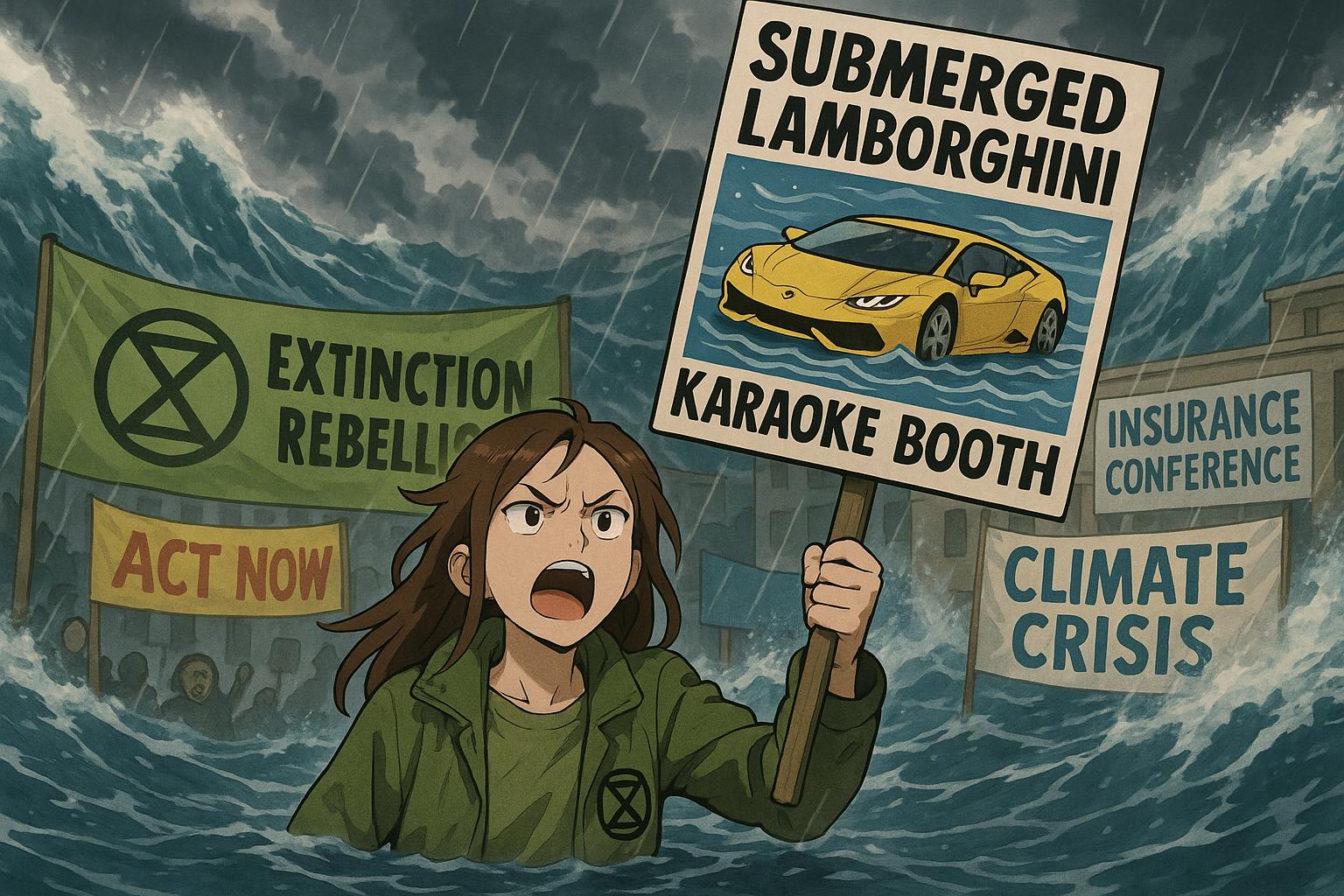Extinction Rebellion’s Insure Our Survival campaign has once again turned the spotlight on the insurance industry's pivotal role in exacerbating the climate crisis. For the third consecutive year, activists disrupted the British Insurance Brokers’ Association (BIBA) conference, the largest gathering of insurance brokers in Europe, demanding an end to the industry's support for fossil fuel projects. Despite its theme of “A New Era,” the event was overshadowed by vivid protests that underscored the urgent need for reform within the sector.
Central to the protests was the message articulated by Sarah Brown from XR Macclesfield, who drew attention to the insidious dependency of fossil fuel projects on insurance backing. "Any big fossil fuel projects, pipeline, coal mine, whatever it is, they all need insurance companies to back them," she explained. By swaying these companies to withdraw their support, activists believe that further fossil fuel projects could be effectively halted.
The day featured an engaging array of activities, including performances by a climate choir and street theatre, designed to captivate attendees and spark dialogue. One particularly striking element of the protest was a life-sized model of a Lamborghini, designed to appear as though it were submerged in floodwaters, which was then repurposed as a karaoke booth. This creative approach not only entertained but served to highlight the increasing severity of extreme weather events linked to climate change.
Conversations between activists and attendees demonstrated a spectrum of reactions. While some delegates expressed support for the movement, asserting that their companies were moving towards insuring cleaner energy projects, others displayed indifference, with one stating outright, “I’m not a moral guardian.” Nevertheless, activists managed to engage with over 100 conference delegates, igniting conversations about climate responsibility within the insurance sector.
Beyond this singular event, the Insure Our Survival campaign dovetails with a broader global push against the fossil fuel industry. In recent months, notable victories have included the announcement from Chubb that it would not support the contentious East African Crude Oil Pipeline (EACOP). Such developments indicate a shift within the industry, spurred by relentless activism. Martin Porter, a spokesperson for the coalition behind the protests, emphasised the precarious position of the insurance sector, which profits from fossil fuel projects while wrestling with the financial fallout of climate-related disasters.
This year’s proactivity from Extinction Rebellion followed a series of protests that targeted major insurers, including AIG and AXA, as part of a comprehensive strategy to reshape the landscape of corporate responsibility in the face of climate change. These protests, marked by direct actions such as blockades and symbolic displays, aim to compel insurance firms to re-evaluate their partnerships with high-risk fossil fuel projects and pivot towards renewable energy initiatives.
The campaigns spotlight the complex dynamics at play within the insurance industry, which, unlike the fossil fuel sector, does not deny the impact of climate science. As insurers grapple with climate-litigation risks and the increasing frequency of extreme weather events, their potential to become allies in the climate fight is significant. Activists have expressed hope that by engaging with industry players, they can catalyse a shift from complicity to activism within the sector, creating a paradigm where insurance companies champion sustainable projects instead of undermining them.
As Extinction Rebellion continues to mobilise, their focus on insurance companies speaks to a crucial battleground in the fight against climate change. The coalition plans further actions across various locations in the UK, urging insurance professionals to step up and make impactful decisions for the planet's future.
Source: Noah Wire Services
